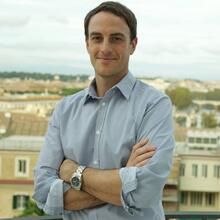A Reflection for the Memorial of St. Josaphat, Bishop and Martyr
You can find today’s readings here.
When you have done all you have been commanded, say, ‘We are unprofitable servants; we have done what we were obliged to do.’” (Lk 17:7-10)
When I first read the final document of the Synod on Synodality on October 26th, I didn’t know what to make of it. After covering both the 2023 and 2024 assemblies in Rome, I had been preparing for two possible outcomes: One, that the tireless search for consensus among the delegates would create a banal text void of creative energy and inspired proposals. Or two, that, in the end, finding consensus on meaningful issues would prove impossible, thus throwing the future of synodality up in the air. Neither happened.
Instead, the delegates boldly claimed synodality as the standard for how the Catholic Church is to live and act (30). At times the document reads with such conviction that we should all jump at the opportunity to try the “Conversation in the Spirit” method in our own parish or faith community. Undoubtedly, many of them will come alive in new and unexpected ways.
At the same time, the document addresses some points of tension, without caving into a mere tolerance of varying opinions. On the possibility of women deacons, for example, the document simply states, “The question of women's access to diaconal ministry remains open. This discernment needs to continue.” Addressing the hierarchy’s legitimate exercise of authority in a synodal church, the document states that, “[this authority] may not ignore a direction which emerges through proper discernment within a consultative process, especially if this is done by participatory bodies.”
What permeates the text, which had not occurred to me until I read it, is a deep maturity. It speaks with conviction because it speaks from experience and listening. It’s firm, but flexible. It recognizes that the first step in creating a synodal church is self-reflective conversion. It demands the participation and accountability of all the baptized.
In today’s Gospel reading we hear Jesus tell his disciples a hard truth. Discipleship doesn’t come with entitlement or recognition. There’s no flash or fanfare. It has responsibilities and duties, and we shouldn’t expect fireworks for doing what we signed up to do. This is mature discipleship. It faces reality. It takes ownership. It involves and includes everyone. This is what the synod has given the Catholic Church in its final document. The delegates did “what they were obliged to do.”







